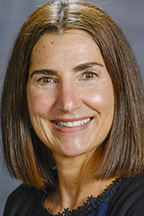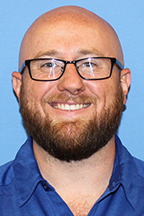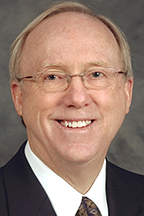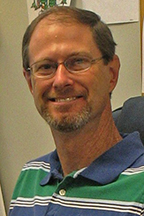A group of MTSU faculty with similar interests, expertise, and knowledge around aging and older people have launched a new interdisciplinary Positive Aging Consortium at the university.
Organized by Deborah Lee, who took the NHC Chair of Excellence in Nursing in January, the consortium will draw on a wide variety of disciplines at MTSU to collaborate and share resources for research, education, and community service.

Dr. Deborah Lee
MTSU also currently offers both an undergraduate minor and a graduate certificate in Gerontology through the interdisciplinary Aging Studies Program, housed in the Department of Sociology and Anthropology. The graduate certification program soon will make its classes available online so professionals can fill in knowledge gaps while working in various fields related to aging and the elderly, professor Ron Aday said.
“People are hungry for our expertise,” Lee said.
When she and co-organizer Brandon Grubbs, Exercise Science faculty member, attended a Rutherford County Council on Aging meeting recently, they were met with excitement and interest on how to spread the word to the community. Senior centers, assisted care, and long-term care facilities would be among partners who can benefit from and help with some research topics, including in areas like fall prevention and independence in daily living.

Dr. Brandon Grubbs

Dr. Ron Aday
By 2040, 80 million Americans will be 65 or older — accounting for 1 in 5, or 20 percent, of the total population.
“We’re problem-solvers,” Grubbs said during a faculty gathering earlier this month to discuss the new consortium. “… We can take the resources each of us have and share as a group to impact the university setting as well as the community setting.”
Of the 19 faculty at the initial Positive Aging meeting, disciplines represented included exercise science, family studies, nursing, nutrition, psychology, public health, social work, sociology, and even economics and finance.
Keith Jacks Gamble, chair of the Department of Economics and Finance, was featured in MTSU’s “Out of the Blue” television magazine show discussing his research on how cognitive decline in the elderly affects financial decision-making often before families become aware. Watch below:
Other faculty members’ teaching and research interests of those attending range from maintaining and improving mobility, frailty, and quality of life, to dementia, food security, end of life care, death and dying, and gaps in services for aging populations in rural areas.
Faculty expertise from all across campus will be sought as the consortium officially gets off the ground, including from areas like biology, data science, and speech-language pathology and audiology.

Dr. Brandon Wallace
The Positive Aging Consortium will have its next meeting in the fall as Lee works this summer on drafting the vision, mission and goals. Seeking funding from grants, agencies and corporate partners will also be part of the project going forward.
“The Gerontology program has been an important part of the university, but with retirements in recent years, faculty aren’t always replaced by those as interested in aging,” said Brandon Wallace, chair of the Department of Sociology and Anthropology.
“It’s exciting to me for this new cohort to come in and have this interest in aging.”
For more information about the consortium, contact Lee at Deborah.Lee@mtsu.edu or 615-904-8059.
— Carol Stuart (carol.stuart@mtsu.edu)

COMMENTS ARE OFF THIS POST